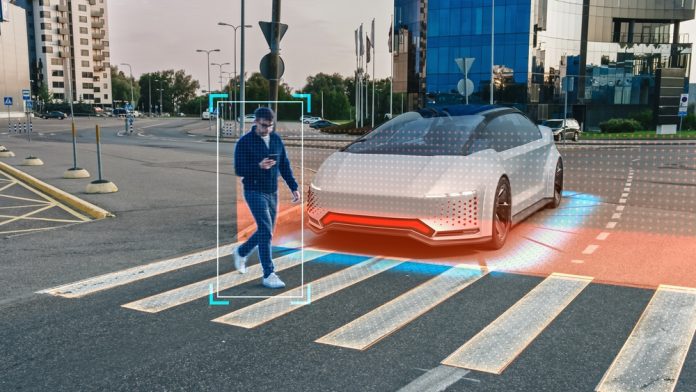In the heart of Silicon Valley, the future of mobility is unfolding before our very eyes, painting the streets of San Francisco with the colors of innovation and the promise of autonomy. As the founder and CEO of a recently acquired automotive software company, my professional life orbits the nexus of automotive technology, and it’s my personal passion for automotive innovation and technology that compels me to share this new Silicon Valley Update for CBT News, focusing on topics that blend high-tech and automotive.
Living in downtown San Francisco, I find myself at the epicenter of autonomous vehicle technology, a living laboratory where companies like Waymo, Tesla, Zoox, and Cruise are redefining mobility. My firsthand experiences with these autonomous vehicles have not only provided me with a glimpse into the future of transportation but also an appreciation for the complex tapestry of technology, regulation, and public perception that shapes this evolving landscape.
The Contrast of Progress and Setbacks
The journey of autonomous vehicles in San Francisco has been both exhilarating and tumultuous for some players. In October 2023, the city made headlines when Cruise, a subsidiary of General Motors specializing in autonomous technology, faced regulatory challenges. The company’s license was suspended following an incident in Chinatown, where a Cruise vehicle blocked traffic, including an ambulance, underscoring the complexities of integrating autonomous vehicles into densely populated urban environments. This event, along with other challenges faced by Cruise, caused it to temporarily lose its license to operate.
Cruise is not the only game in town, the autonomous vehicle space is marked by well-capitalized competition, with each company bringing its unique approach to the fore. Cruise’s early beta tests in downtown San Francisco started in 2021, which I had the privilege to experience. It only operated the hours of 10 p.m. to 5 a.m. in select areas and offered an early glimpse into the potential of autonomous mobility. My friend from Atlanta and I took the longest 25-minute autonomous ride at the time. The experience, from summoning the vehicle via an app to the surreal journey through the city’s streets, was akin to stepping into the future. Despite the odd pricing and the occasional close call, the experience rivaled that of a two or three-star rated Uber driver.
In contrast, Waymo, operated by Alphabet (Google’s parent company), employs a fleet of Jaguar luxury SUVs, offering more expansive coverage and has not had their license revoked yet. A difference between them and Cruise is that Waymo offers a more direct route along busier roadways, and Cruise has longer, less complex downtown routes. My journey with Waymo from my condo to Crissy Field was nothing short of revolutionary, and I have embedded the video below if you are reading this article online:
The Waymo ride, complemented by the breathtaking views of the Golden Gate Bridge, exemplified the advancements in autonomous technology and the potential for a future where transportation is not just a means to an end but an experience in itself. Zoox (Acquired by Amazon) is another contender in the autonomous vehicle race, bringing another flavor of autonomous rides, along with several other smaller, less capitalized autonomous tech companies that also operate in downtown San Francisco. Seeing cars without drivers coming down the Embarcadero in San Francisco is sometimes humorous.
Tesla’s Consumer Impact and Future Prospects
Tesla’s aggressive approach to deploying semi-autonomous technologies in consumer vehicles has undoubtedly accelerated public interest and adoption of these technologies. Tesla has prompted traditional automakers to accelerate their autonomous vehicle programs in response. Tesla has recently made headlines with their latest release of the Full Self-Driving (FSD) Beta v12.3, which showcases a significant leap towards full autonomy by employing a complete end-to-end neural network. This advanced version aims to improve the driving experience by handling more complex scenarios in a natural, human-like manner. Despite its transformative potential, Tesla labels this update as ‘Beta,’ indicating ongoing refinements and a cautious approach towards widespread deployment. Lastly, Elon Musk has promised robo-taxi service by August 2024 if operating semi-autonomously rollouts of their tech wasn’t enough!
Reflections and Forward-Looking Thoughts
Nowadays, anyone who visits me in San Francisco takes a ceremonial autonomous ride so they too can firsthand witness this technology. My experiences with autonomous vehicles in San Francisco have been varied, each ride adding a piece to the complex jigsaw puzzle of autonomous transportation. While the technology has yet to permeate every corner of our daily lives, the millions of miles tested on public roads are a testament to the relentless pursuit of a future where vehicles not only drive themselves but also redefine our relationship with mobility. Regulatory challenges, technological hurdles, and public skepticism are but a few of the obstacles that need to be overcome before we see a fully autonomous future. I still see this a decade out before mainstream, but it is moving at an impressive rate of innovation!




